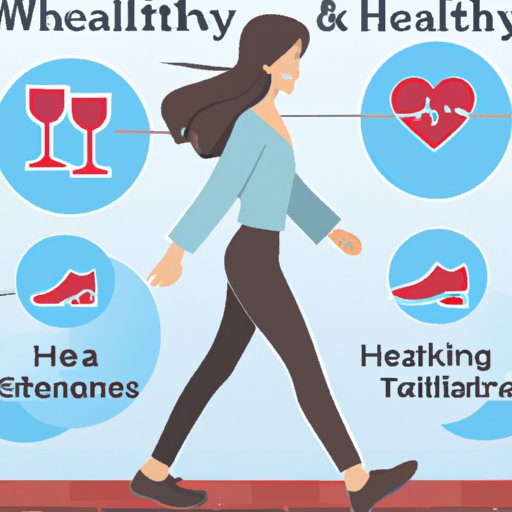Introduction
Walking is one of the simplest forms of exercise that can be done by people of all ages and abilities. Whether you’re a seasoned athlete or someone just starting out on their fitness journey, walking is a great way to stay active and healthy. Not only is it low impact, but it also provides a wide range of physical and mental benefits.
In this article, we’ll explore the many benefits of walking and why it’s the best exercise for everyone. We’ll look at how regular walks can improve your physical and mental health, as well as how it can help with weight loss and improved balance.
The Health Benefits of Walking
Walking is an excellent form of exercise and has many health benefits. Regular walking can improve your cardiovascular health, lower your blood pressure, and increase your muscle strength.
Improved cardiovascular health: Walking regularly strengthens your heart and lungs, making them more efficient at getting oxygen to your muscles. This leads to improved energy levels and a healthier overall body.
Lower blood pressure: Walking is beneficial for those with high blood pressure, as it helps to lower it. This is due to the fact that walking increases your heart rate, which in turn pumps more blood throughout your body.
Increased muscle strength: Walking helps to strengthen your leg muscles, which can make everyday activities like climbing stairs and carrying groceries easier. It can also help to improve your balance and coordination, which can reduce the risk of falls.

Exploring the Physical and Mental Benefits of Walking
In addition to the physical benefits of walking, it also has a number of mental health benefits. Walking can help to reduce stress and anxiety, improve your mood, and even help to improve your balance and coordination.
Stress reduction: Walking can help to reduce stress and anxiety levels by releasing endorphins, which are hormones that make you feel good. Endorphins can help to lift your mood and make you feel more relaxed.
Improved balance: Walking can help to improve your balance and coordination, which can reduce the risk of falls. This is especially important for older adults, who may be more prone to falls due to age-related changes in their bodies.
Improved mood: Walking can help to boost your mood and energy levels, which can make it easier to focus and stay motivated. Taking a brisk walk can also help to clear your mind and give you a sense of accomplishment.
The Ease of Walking: Why It’s the Best Exercise for All Ages
Walking is an easy and accessible way to get the physical and mental benefits of exercise. You don’t need a gym membership or any special equipment, and it can easily fit into a busy schedule. Plus, it’s low impact, so it won’t put too much strain on your joints.
For those who are new to exercise, walking is a great place to start. It’s easy to do and doesn’t require any special skills or knowledge. Plus, it’s free and can be done almost anywhere.

From Weight Loss to Improved Balance: How Regular Walks Benefit Your Body
Regular walking can have a number of physical and mental benefits, from weight loss to improved posture and cognitive function. Here are some of the most common benefits of regular walks:
Weight loss: Walking is a great way to burn calories and lose weight. It’s low impact, so it won’t put too much strain on your joints, and it can be done almost anywhere.
Improved posture: Walking can help to improve your posture by strengthening your core muscles. Good posture can help to reduce back pain and prevent injury.
Enhanced cognitive function: Walking can help to improve your memory and focus, as well as your ability to think clearly. This is because walking increases blood flow to the brain, which can help to improve cognitive function.
Conclusion
Walking is an easy and accessible form of exercise that can provide a wide range of physical and mental health benefits. From improved cardiovascular health to better mood and reduced stress, regular walks can help to improve your overall health and wellbeing. So make sure to incorporate walking into your daily routine and reap the rewards.
(Note: Is this article not meeting your expectations? Do you have knowledge or insights to share? Unlock new opportunities and expand your reach by joining our authors team. Click Registration to join us and share your expertise with our readers.)
